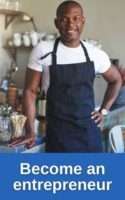Reading is hard work. We have to make meaning out of these squiggles on a page, bring our own knowledge to the text about what a ‘dog’ looks like, or the moon, or a city, or whatever the writer is describing. Our brains are working furiously imagining, predicting what is going to happen next, asking questions, working things out.
Generally by high school, learners have worked out the sounds of the letters, and how they fit together. But they aren’t always expert in making meaning. And this is why talking about what we read can help, as we can encourage the learners to do all that hard work that good readers have to master to make full meaning of the words on the page.
Unfortunately teachers aren’t always able to help learners with this process enough. The one problem is that good readers are automatically asking and answering many questions in their minds as they read text – but teachers haven’t got time to help learners develop this habit of reflection on what you are reading. In a classroom – or in a written exercise – we as teachers usually focus on the questions that have a ‘right’ or a wrong answer, as these are far easier to assess and mark – and there is a lot of pressure to submit results and complete portfolios etc. And yes, these kinds of questions do help work out if a learner has understood the story. But the other more open-ended questions like – What do you think is going to happen next, do you think this is believable, who does this character remind you of – are much harder to evaluate, and so are often neglected in the classroom. Yet these are the questions that help young people become engaged and active readers. And the great thing is that they are easy questions to ask in reading group discussions, as learners are giving their opinions and thoughts – and we all have those!
So it is important to have discussions in reading groups – it is not just a fun extra, but a vital part of helping learners to read more effectively.
Something that you need to avoid in discussions though, is what happens often in big classes: you ask a question, one or two learners supply the answers, or participate in a discussion, and then the others switch off. And so only the few learners who spoke have actually done that important brainwork.
One way of making sure this doesn’t happen is using the THINK, PAIR, SHARE method. This is very simple. You can ask a question, and then ask each learner to THINK about what their answer would be for a few minutes, then to tell a partner what their answer is, and then finally to share their idea in a small group – or in the larger group. In this way every learner is included, and speaks at least once to their partner, even if they don’t get a chance to share in a bigger group.
Here are some statements and question prompts that you can use to get discussion going:
• I am enjoying this book because…..
• I am not enjoying this book because….
• My favourite part of this book so far is …
• My favourite character is … because …
• Do any of the characters remind you of people in your life? How?
• Are you similar to any of the characters? If so, in what way?
• What advice would you like to give to one of the characters?
• What do you think is going to happen next?
• Would you recommend this book to be a school setwork? Why/why not?
• Has anything surprised you in what you have read so far? What?
• Has anything made you angry or sad about what you have read so far? What?
You could even have a box with these questions in and let groups of learners choose one after they have done some reading.
So often at school, talk in class is only ‘right’ or ‘wrong’ answers, and so learners are often worried about being wrong and mocked by their peers. But for the kinds of open-ended questions above there is no real ‘right’ answer, so when it comes to reading and reflecting, we need to make sure that learners feel safe and comfortable. This is especially true when they are reading texts that relate to their lives and worlds, and so what they are expressing is something important and meaningful to them.
It may be useful to work out some ground rules for your reading club to ensure the atmosphere is respectful and supportive. It’s a good idea to explain to learners how important this is to all of their academic and personal development as well.



